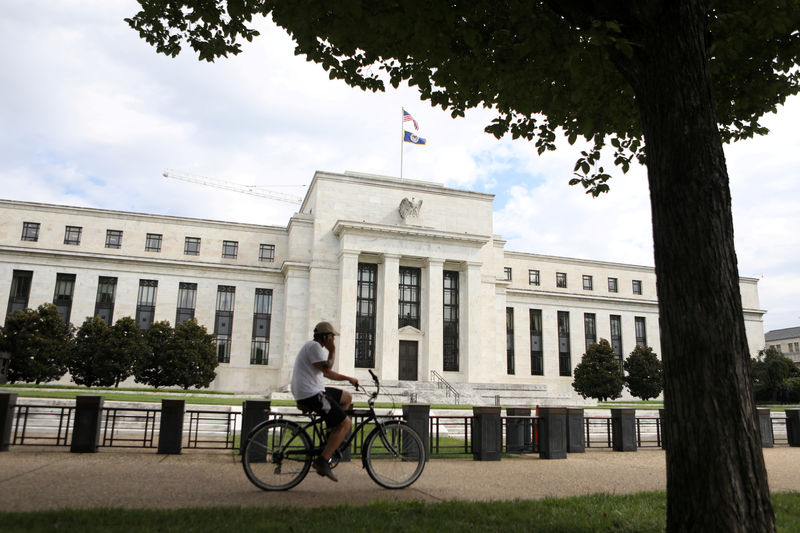By Yasin Ebrahim
Investing.com - The Federal Reserve left interest rates and its pace of bond buying unchanged on Wednesday following the conclusion of its first meeting of the year.
The Federal Open Market Committee kept its benchmark rate in a range of 0% to 0.25% and maintained its $120 billion monthly pace of bond purchases.
The unchanged rate decision comes as the near-term economic backdrop has weakened at a time when consumers appear to be battening down the hatches following a slowdown in the labor market recovery.
"The pace of the recovery in economic activity and employment has moderated in recent months, with weakness concentrated in the sectors most adversely affected by the pandemic," according to the statement.
But this weakness will likely prove transitory as the pace of recovery is expected to gather momentum in second of half the year amid ongoing efforts to roll out vaccines and further support from fiscal stimulus.
In its previous meeting in December, the FOMC signaled that it was no hurry to hike its benchmark rate anytime soon at least through 2023.
Looking ahead, the central bank continued to suggest that the path of recovery would "depend significantly on the course of the virus, including progress on vaccinations." "The ongoing public health crisis continues to weigh on economic activity, employment, and inflation, and poses considerable risks to the economic outlook," it added.
Still, expectations for a stronger recovery, led by pent-up consumer demand has stoked fears that the Fed could be forced to taper its $120 billion monthly pace of bond buying, or quantitative easing, sooner than expected to curb inflationary pressures.
But Fed Chairman Jerome Powell in the press conference that followed the monetary policy decision said: The Fed will likely take a "wait and see approach" to a potential post-pandemic rise in inflation, which he expects would prove to be "transient." "The economy is a long way from our employment and inflation goals, and it is likely to take some time for substantial further progress to be achieved," he added
Powell also hit back against accusations that the Fed's ultra-easy monetary policy has led to frothy stock market valuations including the latest meteoric rise in specific stocks like GameStop (NYSE:GME).
Asset prices in the last couple of months have not been driven by monetary policy but rather "expectations about vaccines, and fiscal policy," Powell said. "The connection between low interest rates and and asset values is probably something that's not as tight as people think because there is a lot of different factors driving asset prices at any given time," he added.
